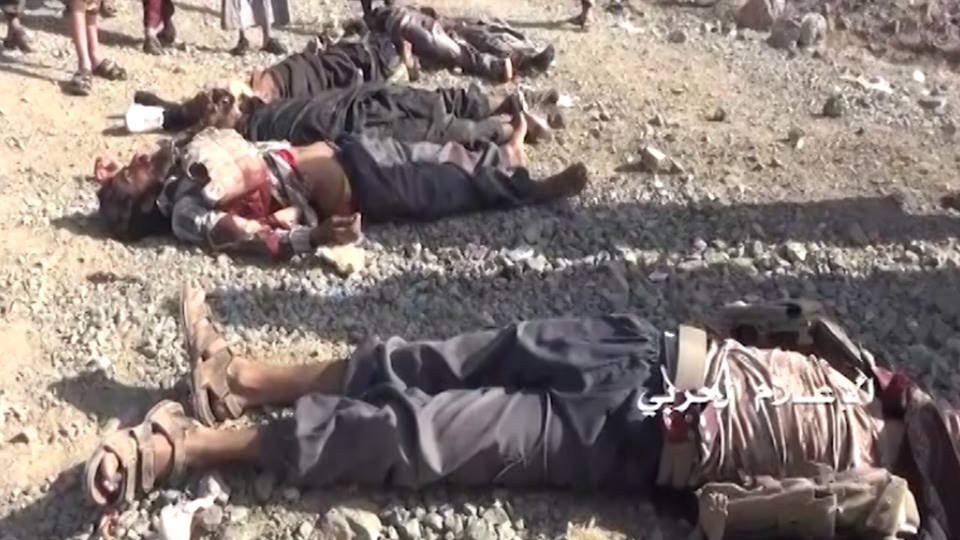
Yemeni joint forces avenge from Saudi-led coalition
YemenExtra
Y.A
The Yemen joint forces carried out military operations, including artillery, missiles and snipping attacks against the Saudi-led coalition and its paid fighters over the past 24 hours in response to the Saudi-led coalition’s fatal airstrikes that killed and injured over 600,000 in Yemen.
Saudi coalition media admitted that 11 soldiers fell dead as a result of clashes with the Yemeni joint forces in border fronts line, according to AL-Masirah site.
A ballistic missile, Bader-1, was fired toward radar brigade in Khamis Mushait, two orghan missiles were fired toward gatherings of Saudi-led coalition and Sudanese soldiers beyond Alb crossing, and a Saudi soldier was shot dead in Qashabah site , while five paid fighters were shot dead beyond Alab crossing inAsir front, it added .
The Yemeni war media reported that artillery and missile shelling targeted gatherings of the Saudi-led coalition ,a Bradley vehicle was burnt , and a paid fighters was killed in Najran front.
Missile force of the Yemeni joint forces targeted sites of the Saudi-led coalition in Jizan front, it confirmed.
Nehim front witnesses that two paid fighters were killed at the hands of the Yemeni joint forces .
Notably, scores of paid fighters were killed and injured due to an ambush , and an offensive operation was carried out on the paid fighters’ sites in West coast front, killing and wounding scores in Taiz province.
Additionally , an attack was carried out on the paid fighters sites in lahj front , as a result dead and wounded amid their ranks were reported .
To conclude it with AL-Jawf front , a high ranking of the Saudi-led coalition was killed., and engineering destroyed a military vehicle of the paid fighters by an explosive device , killing those on board.
In March 2015, Saudi Arabia and a coalition of its regional allies — mainly the united Arab Emirates and Jordan — started a war against Yemen with the declared aim of crushing the Houthi Ansarullah movement, who had taken over from the staunch Riyadh ally and fugitive former president Abd Rabbuh Mansur Hadi, while also seeking to secure the Saudi border with its southern neighbor. Three years and over 600,000 dead and injured Yemeni people later, the war has yielded little to that effect.
“Hodeida should be supporting more than 20 million Yemenis. It should be the source of at least 70 percent of all imports to Yemen,” Suze van Meegen, a protection and advocacy adviser with the Norwegian Refugee Council, told AFP.
As if it weren’t bad enough that Hodeidah and its environs are among the most severely harmed by the blockade and the threat of famine, the civilians living there are also at risk of being bombed for no reason. There is no excuse for bombing this house and killing these civilians. This attack is a gross violation of international law and a war crime, and the governments responsible for it should be held accountable. This is what the coalition does with the refueling and weapons that the U.S. provides them. Refueling coalition planes just makes it easier for them to carry out more outrageous attacks like this one. Secretary Mattis tried arguing the other day that refueling gives coalition pilots more time to make better decisions about where to drop their bombs, but that ignores the reality that coalition governments have routinely shown blatant disregard for civilian life throughout the war. This latest attack is just the latest example out of the thousands and thousands of strikes on civilian targets that the coalition has carried out.
At the same time Mattis made his statement, a $1 billion weapons deal to Saudi Arabia was announced on the same day. Along with the $100 billion weapons deal signed between Washington and Riyadh last year, this will obviously further empower Saudi’s military campaign on Yemen, which Mattis supposedly wants to end.
